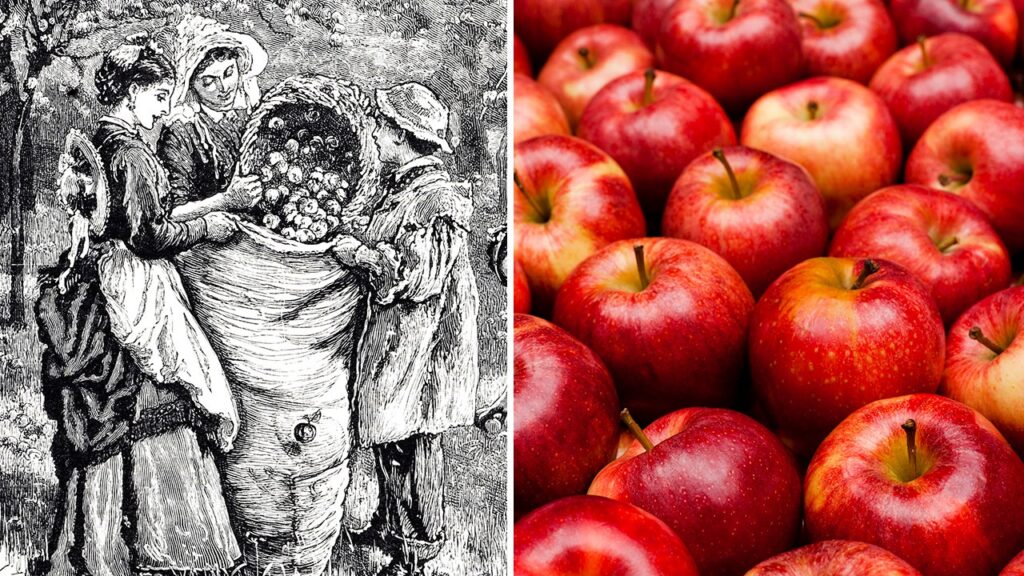As autumn beckons, it is fitting to pay homage to William Blaxton, a figure pivotal in American cultural and agricultural history, particularly regarding apples. In this season of harvest, when apples are plucked from trees, bobbed for during Halloween games, and transformed into delightful pies for Thanksgiving, it is worth reflecting on the man credited with introducing apple cultivation in America. Blaxton, often referred to as Blackstone in modern texts, planted the first apple seeds in the 1620s in what is now Boston, Massachusetts. A reclusive yet astute English settler, he laid down the groundwork for an orchard culture that would symbolize American resilience and innovation.
Born on March 5, 1595, in Lincolnshire, England, Blaxton’s life was marked by early challenges, including the death of his mother during his childhood and the loss of his father shortly after his ordination as a priest in 1621. With the burgeoning desire for new opportunities in the New World, he joined an expedition to America as a chaplain aboard the ship “Katherine.” Upon arriving in the ill-fated settlement of Wessagusset (modern-day Weymouth) in 1623, he chose to venture north to the Shawmut Peninsula, the future site of Boston. There, Blaxton became the sole inhabitant of the region before the arrival of the Puritans in 1630, solidifying his legacy as one of the earliest settlers.
Blaxton’s contributions to apple cultivation may not be as heralded as some historical figures, yet his cultivation of the first orchards represents a cornerstone in American agricultural expansion. According to John Bunker, an authority on apples, Blaxton was the first to bring this exotic crop to American shores. This bold introduction would eventually lead to a synthesis of cultural flavors and farming practices, culminating in a national heritage richly interwoven with the symbolism of the apple. Apples have become synonymous with American values and identity, so much so that New York City is famously dubbed the “Big Apple,” while sayings like “as American as apple pie” underscore their integral place in popular culture.
The journey of the apple, however, begins far from American soil, tracing its roots back to Central Asia, specifically Kazakhstan. The fruit’s introduction to the Americas was only possible following the age of exploration initiated by Christopher Columbus, which opened avenues for the blending of Old World and New World foods, including staples like corn, potatoes, and tomatoes. Blaxton’s personal life mirrored his affinity for solitude and nature; he preferred the company of his orchards and books rather than the bustling society around him. It is said that he once noted, “I looked to have dwelt with my orchards and my books in undisturbed solitude,” highlighting his reclusive nature.
In his lifetime, Blaxton established multiple apple orchards, which not only offered sustenance but also served as a crucial connection to his homeland. The apples he nurtured are believed to have contributed to some of the earliest American varieties, including the Roxbury Russet, first documented in 1635. His orchards were located at what is now the vibrant heart of Boston, a city that continues to flourish while honoring its historical roots. The cultivation of apples precursed the establishment of Boston Common, the oldest public park in America.
Even in his eccentricity—illustrated by tales of riding a bull through Boston while tossing apples and flowers—Blaxton’s legacy continued to blossom across generations. His departure from Boston to “Study Hill” in what is now Rhode Island further cemented his status as the area’s first permanent English settler. It was here that he created a haven for the apple trees he cherished.
William Blaxton’s life came to an end on May 26, 1675, in Cumberland, Rhode Island. His influence remains visible in the landscapes of Massachusetts and Rhode Island, where places bear his name, from Blackstone Street in Boston to the Blackstone River, which became essential for early American industry. The apple trees he planted have become entrenched symbols of abundance, sustaining communities and embodying the spirit of pioneering life.
As we relish the apples this fall, whether in pie, cider, or simply fresh from the orchard, let us remember the man whose love for these fruits shaped an enduring symbol of American culture. Apples not only exemplify agricultural achievement but also serve as a reminder of the interconnected narratives that define the American experience. As Bunker aptly puts it, apples “teach us what it means to be alive and joyful on earth.” In celebrating both Blaxton and the fruit he cherished, we connect with our history and the diverse tapestry of people and traditions that continue to shape our nation.



